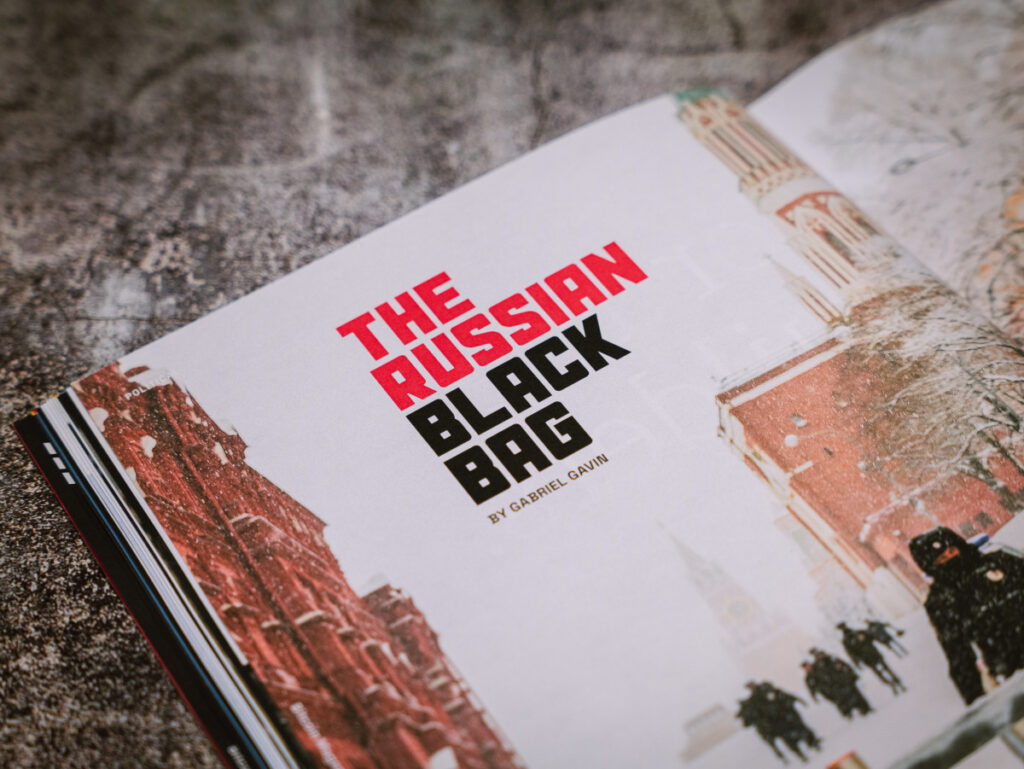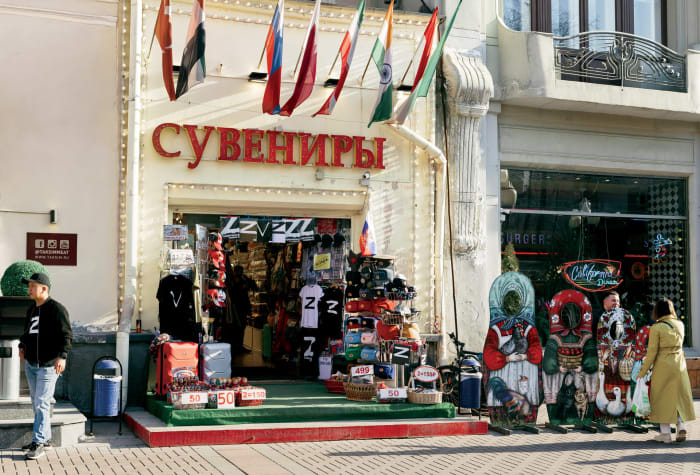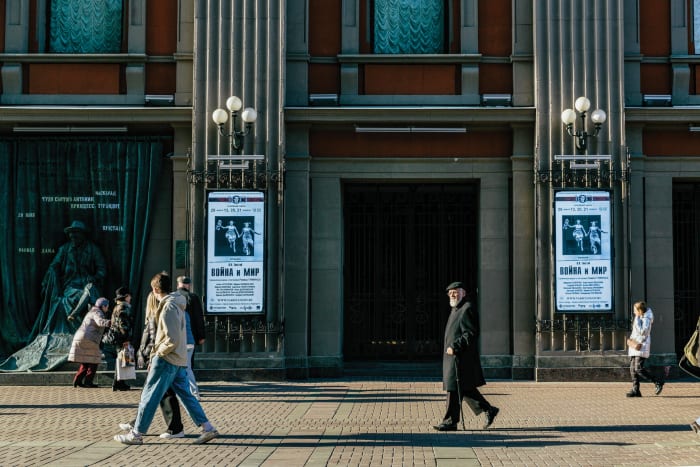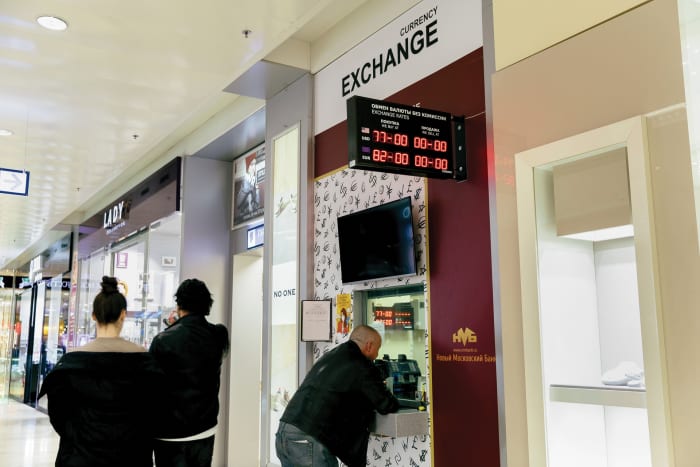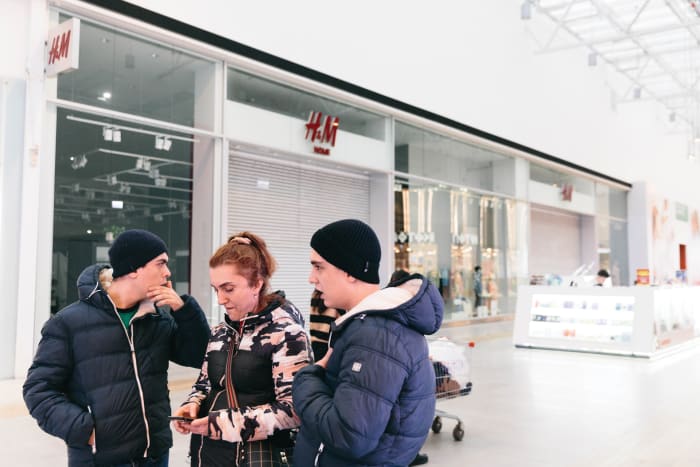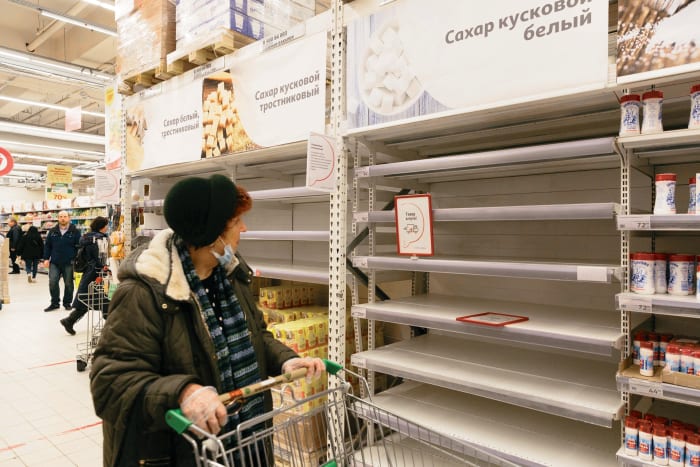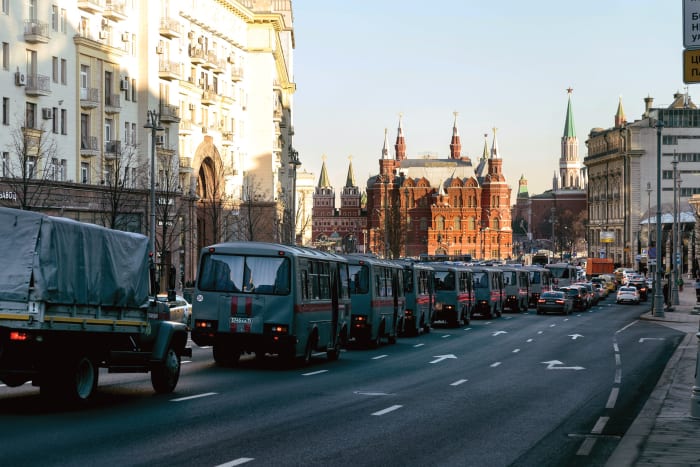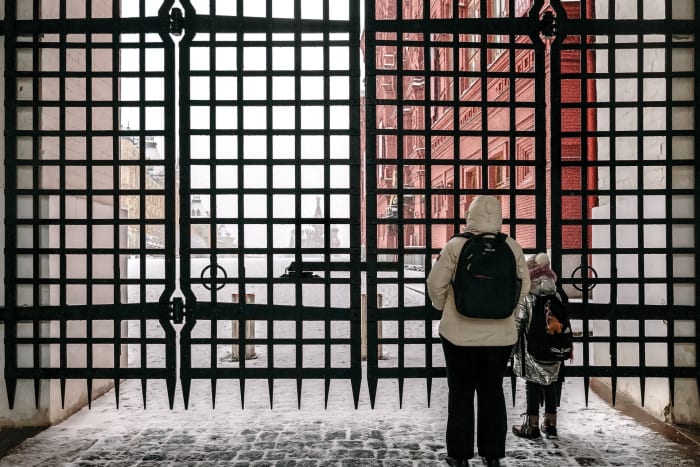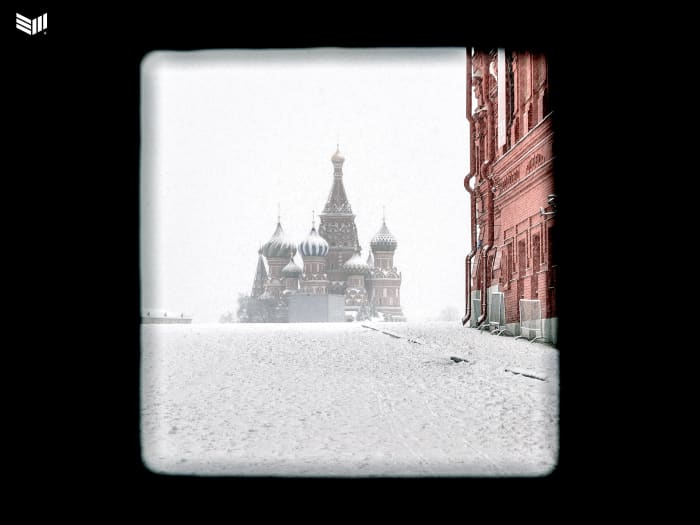This article originally appeared in Bitcoin Magazine’s “Censorship Resistant Issue.” To get a copy, visit our store.
If the world around you collapsed overnight, it’s easy to imagine you would have a plan. Many people would pack their bags and get on the next flight out to start a new life somewhere better. But when society breaks down slowly, it is harder to know when it’s time to go. Sure, the shelves are bare now, but it’s only because of the panic buying. The government may have passed laws banning criticism, but they won’t last, right? And besides, what would you do with your job, with your cat?
For weeks, these were the questions Russians found themselves asking when all of a sudden, it was too late. At first glance, not much changed after Vladimir Putin ordered the attack on Ukraine. Across the border, rockets rained down, killing countless civilians and forcing millions to flee their homes, but in Moscow, things carried on more or less as normal. People worked, shopped and partied just as they had before. But gradually,and then all of a sudden, the war began to shake the lives of Russians as well.
In the months leading up to the invasion, people believed what they were told by the government — that Western spy agencies’ reports of troops massing on the shared frontier were simply hysteria, and that there was no plan to launch an offensive.
“Throughout its history, Russia has never attacked anyone,” Kremlin spokesman Dmitry Peskov insisted, just two weeks before the tanks began to roll. “Having been through so many ourselves, we’re the last country that would resort to war.”
Few, it seems, were as surprised as ordinary Russians when Putin appeared on their television screens in the middle of the night to announce he had ordered “a special military operation” to “demilitarize and de-Nazify” Ukraine.
“We were like little children,” Masha Kopilova, a 28-year-old marketing executive from the Siberian city of Tyumen, told Bitcoin Magazine, “we didn’t think anything bad would ever happen — and then it did.”
She was on a business trip to Turkey at the time worrying about economic chaos and political repression; she is one of the tens of thousands of Russians now determined not to return home.
In the days and weeks since, the West has pressed the financial equivalent of the nuclear button, imposing sanctions on a scale never seen before against an economy that was, until recently, the sixth largest in the world in real terms. Measures introduced by countries like the U.S. and U.K., as well as the EU, have blocked investment by international firms and cut off access to foreign funds, threatening to force Russia to default on its debts. The scale and severity of the restrictions overshadow anything levied against countries like Iran, Cuba or North Korea in the past. Even if nobody knows what specifically they will achieve, it is clear they were designed to hurt.
“This is an economic Blitzkrieg against us,” President Vladimir declared in March, as another round of Western sanctions began to bite. “But it has failed.”
For years, the Kremlin has been working to reduce its dependency on foreign currency and technology, fearing the day might come when they were switched off. In reality though, Russia was as wired-in to the global financial system as almost anywhere else. Its disconnection from the SWIFT payments platform has wiped billions off the value of its banks, while export bans have seen manufacturing of everything from cleaning products to tanks ground to a halt.
Few believed their personal circumstances would change all that much. “We’ve had sanctions before,” Andrei, an agricultural pesticides salesman from the Volga River city of Samara, said just 36 hours after the invasion began. “We had them because of Crimea, we’ve had them because Donald Trump won that election — they will try to punish us for anything. But it’s never affected me.” And, in many ways, it hadn’t — he drives a new Mercedes and his Instagram is full of pictures taken on foreign holidays from China to London. This time though, things were different.
People like Dmitri hadn’t even noticed that the ruble had lost half its value after a brutal day of trading until the prices for basic goods began to shoot up due to rising costs for manufacturers. The price of a new iPhone had virtually doubled by the end of the first week, with speculators rushing to convert their cash into anything of value and Apple fans fearing the company would pull out. Just a few days later, the Silicon Valley firm announced it would stop shipping devices to Russia, closing its online stores. “We only have one laptop left,” a shop worker at a reseller on Moscow’s glitzy Tverskaya Street said the first weekend after the start of the war. “We’ve been totally cleared out.”
Social networks like Instagram, TikTok, Facebook and Twitter have been banned, cementing the country’s rapid descent into an isolated pariah state. New laws ban the “discrediting of the Russian military” and threaten journalists with up to 15 years in prison for spreading “fake news” about what officials continue to insist is just a “special military operation.” In reality, this means no printing of facts that do not come directly from the Kremlin, forcing independent media to shut down rather than face turning into propaganda outlets themselves. In their place, a web of Telegram channels and online news groups have become the only source of Russian-language news that challenges Putin’s narrative.
At the same time, young people were horrified by the news that some of their favorite brands, including H&M, Uniqlo and IKEA, would leave the country, as well as fast-food firms like KFC, Burger King and McDonalds. Some intrepid Happy Meal-lovers queued for hours on the last day the Golden Arches was open to fill their fridges with Big Macs and cheese sauce — a special menu item only available in Russia. “It’s not fair that ordinary Russians are being punished,” Vyacheslav, a student working part time in one store said. “People have families, they need to pay taxes.”
Not everyone has been as disappointed that the country is being cut off from the rest of the world. “The news is getting better and better every day,” brutal Chechen warlord Ramzan Kadyrov wrote online. “Gone is the domination of the market by American body-destroying booze and convenience foods from McDonald’s, catering for people who want to make themselves obese. I have always called for people to buy our organic food and eat right.” Beyond giving dietary advice, Kadyrov was put in charge of the failed assault on Kyiv and has previously been accused of abducting political opponents and murdering LGBTQ+ people in the region he rules.
The governor of Russia’s Central Bank, Elvira Nabiullina, agrees. “Now it is maybe more important than ever that people don’t waste money on unnecessary products,” she warned in April in a stark assessment of the “difficult period” citizens face. “Sanctions primarily affected financial markets, but now they’re starting to affect the economy,” she said, warning of price rises and out-of-control inflation.
But it isn’t just luxury imports Russians are missing out on. Fearing a return to Soviet-style shortages, pensioners have raided grocery stores across the country, stripping aisles of tinned goods and foods with long shelf-life. “The shelves were empty – no salt, no sugar, no pasta, no buckwheat, and only expensive rice,” Anna, a shopper at the Perekrestok supermarket in the Russian capital said, after posting a clip of elderly people wrestling for the last few items left. “Now my cat is eating more expensive food than I am,” Darina, a 25-year old interpreter said, bemoaning the price rises for pet supplies.
Like Kopilova, who has decided to stay in Turkey, many Russians are desperate to leave and live abroad instead. But with most of Europe closing its airspace to flights from the country, people have few choices to escape, with tickets to the few destinations still open — Turkey, Georgia and Armenia — effectively tripling in cost. “I bought a Rolex about a year ago,” Sasha, an IT specialist working for a British firm in St. Petersburg, told Bitcoin Magazine from a coffee shop in Istanbul. “I sold it to pay for tickets for me and my girlfriend to get here, and so we’d have some money to get set up.” Others aren’t so lucky, and it is believed tens of thousands of would-be emigres have returned home because they couldn’t access their funds with Russian bank cards blocked abroad.
In an effort to prevent people taking their savings out of the country, Putin has introduced a ban on buying foreign currencies and made it illegal to leave with more than $10,000 in cash. As a way around that problem, many were forced to buy jewelry or electronics to sell when they get to their destination.
“I waited for an hour to buy dollars,” Kyle, an American citizen working in the Russian capital sighed, having queued up at a currency exchange along with desperate locals, “but the woman in front of me got the last ones.” He has since left the country; “in the end, I put all my rubles into crypto to get my money out,” he says by way of an online update.
Anastasia, a young Moscow-based investor who advises firms on trading in cryptocurrency under the pseudonym @LadyAnarki, says that interest in digital exchanges has shot up in recent weeks. “Russians understand the black market and the gray market — everybody here understands how to get around rules that they don’t like. It’s quite anarchistic in that way. They follow the rules they really have to, and avoid the others. They’re not selling dollars, so where do people look? To Bitcoin.”
“Russians in general take everything in their stride, that’s how we are culturally because of how much we’ve been through as a country,” she adds. “Some people understand what’s going on, and those are the people who want to leave, but most are staying and hunkering down and will take whatever negative consequences and poverty that comes. The older generation living on pensions who don’t understand crypto will take the heaviest blow.”
In January, the country’s central bank said it was contemplating a “total ban” on cryptocurrencies — making buying, selling, holding and mining a crime punishable by hefty fines. According to officials, the technology consumes too much energy and is a high-risk investment for citizens. However, since the start of Putin’s war in Ukraine, it is clear many see Bitcoin as a safer bet than the ruble.
There has been speculation that Moscow and Russian state businesses could use crypto as a way around restrictions imposed by the West. U.S. Senator Elizabeth Warren claimed that “cryptocurrencies risk undermining sanctions against Russia, allowing Putin and his cronies to avoid economic pain.”
However, top industry figures have resisted calls for a ban on Russians buying and selling, with Changpeng Zhao, founder of Binance, saying that while it complies with the law, “we differentiate between the Russian politicians who start wars and the normal people, many normal Russians do not agree with war. We are not political, we are against war, but we are here to help the people.” Despite that, finding an exchange that is able to process Russian plastic is increasingly hard.
Those who have left and are able to wait out the crisis abroad seem overwhelmingly to be well-paid IT specialists who work remotely and were the first to invest in Bitcoin. One, Taras, who is half-Ukrainian but grew up outside Moscow, has relocated to the coastal city of Antalya in Turkey. “At first I wanted to protest,” he said, “but I realized I’d be arrested, I’d lose everything I have, and I’d still be in Russia. I never thought this would happen, but at least I had a plan to get out when it did.” Those who did not think ahead now find themselves in a poorer, gloomier and more repressive country by the day.

